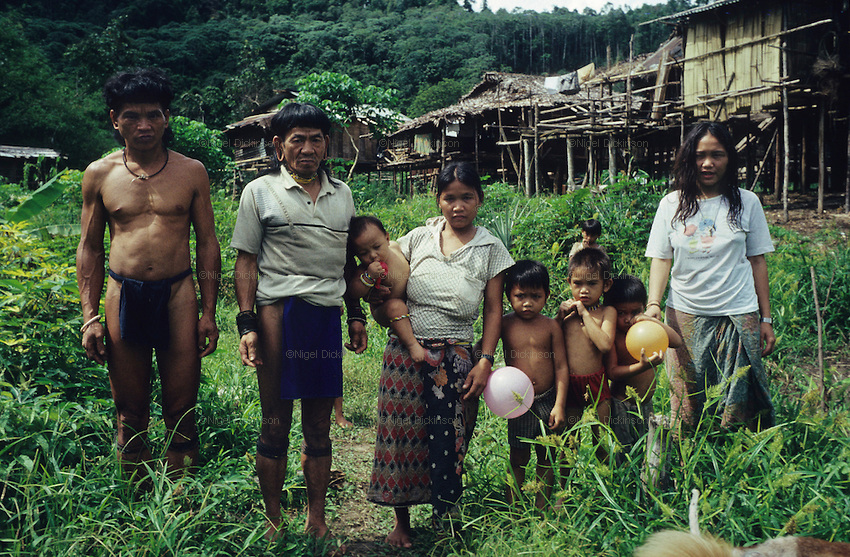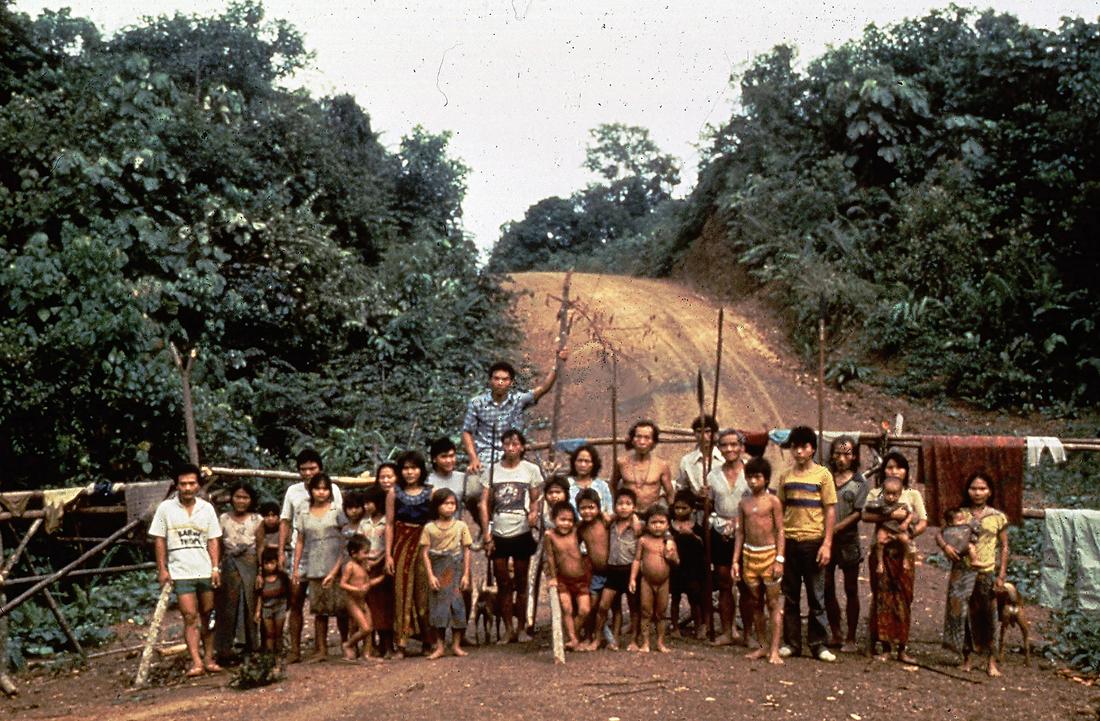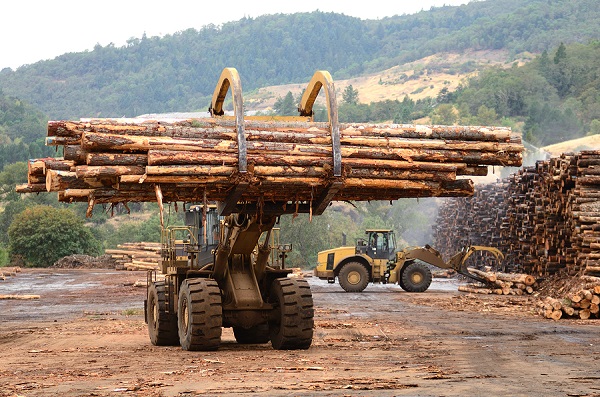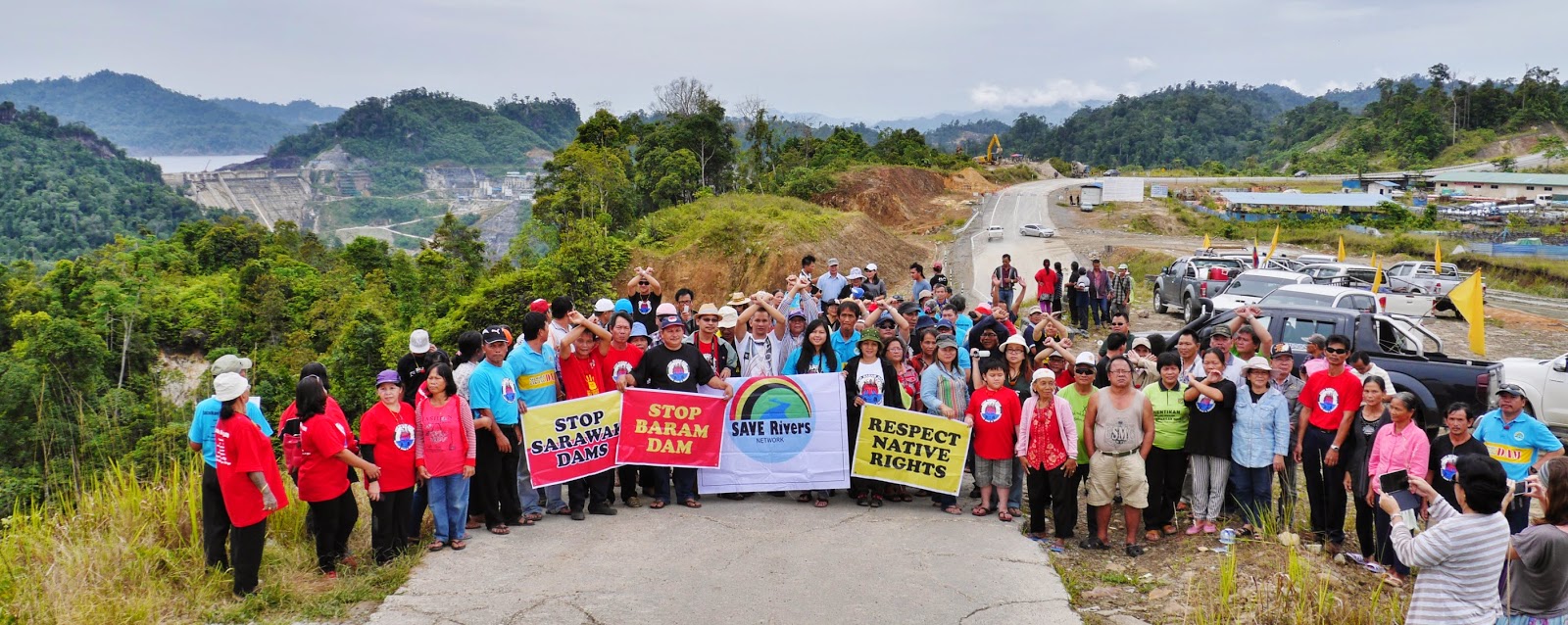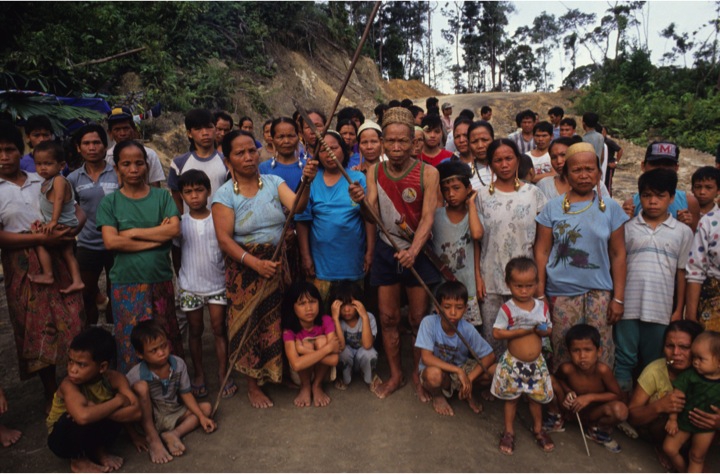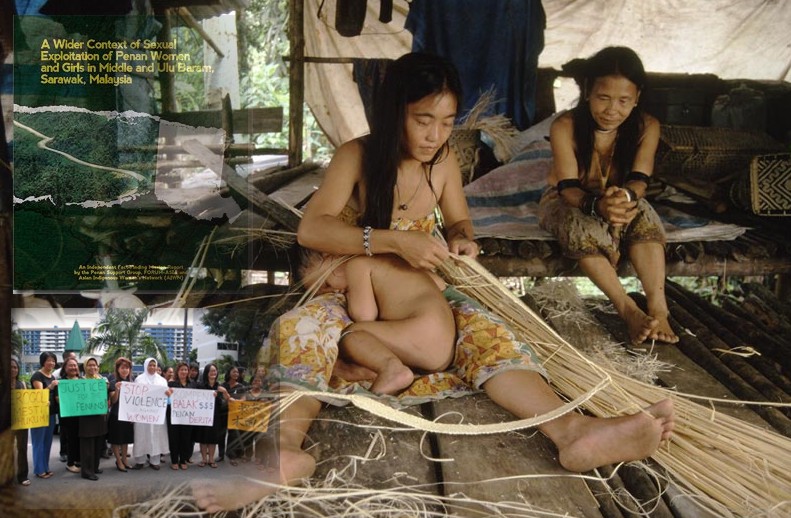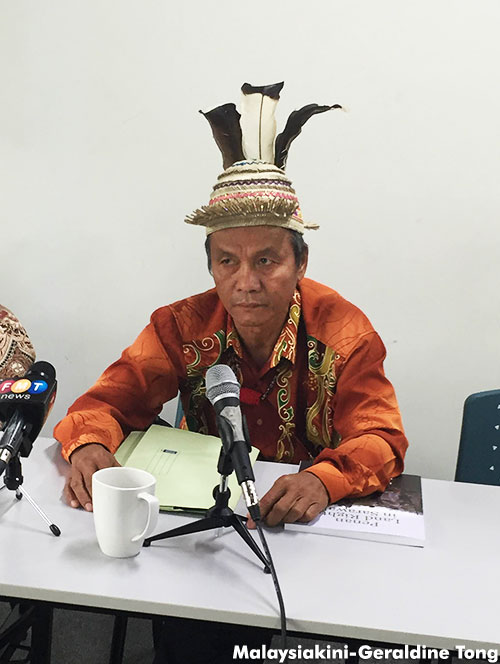Eviction, Death Threats, Rape. Will The Struggles Of Penans In Sarawak Ever End?
The reality and troubles in our lives would pale in comparison to what the natives of the land we call home, Malaysia, have been forced to struggle with for decades.
While west Malaysians are caught up in political turmoils, racial issues and economic development, the natives of our country are desperately trying to hold on to their lands, the only home they have.
Despite urges by the Penan community and the indigenous people of Sarawak for the Malaysian government to stop providing licenses to logging companies, the problem remains unsolved almost three decades later.
The native community of Malaysia, have over the decades, been in the limelight for a multitude of reasons, including problems that resemble a third world nation: lack of basic facilities that include no water supply and electricity, little education opportunities, and most ironically, their constant battle with loggers, both illegal and licensed to protect their lands.
Multiple NGOs and leaders of the indigenous community in Sarawak have been fighting against the destruction of forests in East Malaysia over the years, but the government is yet to provide a solution to this growing problem.
Who are the Penans?
What sets the Penan community apart from the rest of the indigenous people is the fact that they are known to be hunter-gatherers that lead a nomadic lifestyle.
The Penans rely completely on the forests that they live in, their hunting skills that include the expertise of using the blowpipe to hunt animals such as wild boars, deer, birds, squirrels, to name a few. They mainly consume sago and also eat river water fishes.
The blowpipes used by the Penan hunters, usually come with poison darts made from the bark of tajem tree.
Known for their gentle manner and equality between the sexes, the Penan community rely completely on the forests for their survival and livelihood. Destroying the forests, would eventually kill the community as everything that they need to survive; shelter and food comes from the jungles.
Their nomadic nature most often takes them moving about the forests, almost every month in groups of about 40 people, according to a report on the Penan tribe by BBC.
However, timber logging isn't the only problem the Penans are up against, as companies are starting to destroy the forests completely after harvesting valuable trees to make way for oil palm plantations
An aerial view of a barren plot of land, to make way for oil palm plantations.
Image via National GeographicWith Malaysia deriving a major source of its income by being one of the biggest exporters of palm oil in the world, the need for oil palm plantations have been growing steadily.
Palm oil is basically found in almost all the everyday items we use and consume, including food, cleaning agents, and toiletries. This has caused an increasing demand for palm oil from all around the world over the years.
According to an online NGO fighting for the rights of natives, Survival International, two major companies have been actively logging for timbers in Sarawak, Samling Group of Companies and Shin Yang Sdn. Bhd.
Named as one of the major loggers in Sarawak, Samling was established in 1963.
Image via Samling Group of CompaniesThe Samling group’s core business is in the management of forest resource and manufacturing of wood products. Our integrated timber business covers the entire supply chain, from the management and harvesting of forest resources to transportation, processing, manufacturing and sales and distribution of wood products in different regions around the world. Other significant businesses within the Group include oil palm plantations and a notable property development project in Kuala Lumpur.
 samling.com
samling.com
Shin Yang Sdn. Bhd. take pride in being one of the leading companies that focuses on logging and forestry plantation.
Image via Shin Yang Sdn. Bhd.As logs are the main source of raw material, Proper Supply Management is essential. With Shin Yang Sdn Bhd, one of the leading logging and forestry plantation player in the timber industry, and as our mother company, our logs supply are controlled at a level of at least 2 months’ production volume.
Adding to their growing problems, the Sarawak state government informed on 16 May, that they will be building a RM4 billion dam that is expected to displace about 20, 000 people living in the area
A visualization of what the Baram dam that expected to flood 34, 000 hectors of forests would look like.
Image via Sarawak ReportChief Minister Tan Sri Adenan Satem announced on Saturday that he had secured the support of the majority of the community leaders in Baram for the project that will drown an area half the size of Singapore Island and uproot more than 20,000 people.
"The majority of the Baram people want the project to start. It is only the minority who opposed it.
The Baram Dam is to be located at a site between Long Kesseh and Long Naah some 200km inland from Miri.
Based on the proposed construction plan, the dam project will flood some 34,000 hectares of forests - equal to roughly half the size of Singapore.
Contrary to what the government officials have been saying about getting support from the locals to build the dam, a large group of indigenous people have been protesting against it
Locals seen protesting against the plan by the Sarawak government to build the Baram dam.
Image via Sematong ExpressNGO Save Sarawak’s Rivers Network (Save Rivers) has hailed Chief Minister Adenan Satem's moratorium on the controversial Baram Dam and said it will discuss with the affected natives about possibly lifting their blockade.
The native population, supported by Save Rivers, which had battled mega dams by the Sarawak government for decades, had initiated a protracted blockade on construction machinery in a bid to prevent construction workers from intruding onto their land.
"Save Rivers network is in the process of getting feedback from the people on the proposal by Adenan for the removal of the blockades against the Baram hydroelectric dam," said Save Rivers chairperson Peter Kallang.
However, Kallang noted that Adenan had said that there was no final decision on the Baram dam but he would be listening to all views.
The Penan community have been receving terrible backlash for reacting against 'injustices' that are destroying their homes and taking them away from everything they know
In a report titled, A Wider Context of Sexual Exploitation of Penan Women and Girls in Middle and Ulu Baram, Sarawak Malaysia published by Suara Rakyat Malaysia (SUARAM) revealed that the Malaysian Federal Ministry of Women, Family and Community Development in 2009, confirmed the sexual atrocities that have been happening to Penan women.
In summary, the report explains how the authorities, in this case, the Malaysian government, has failed to provide basic necessities and protection for the Penan women, by downplaying the reports and complains of sexual abuses and violence made by the affected women.
This issue resurfaced and made headlines in 2008, when the Swiss-based Bruno Manser Fund (BMF) backed up the allegations by Penan women on how certain loggers and company workers involved in the logging activities have been sexually abusing them.
Following that, English daily, The Star, strengthened the report by BMF when they revealed more disturbing details about the rapes allegedly commited by loggers in Ulu Baram
The report said one of the victims was raped by a timber worker when she hitched a ride in the company’s vehicle to go to school.
Another was raped twice, in 2005 and 2007, by a man she recognised as a timber worker at a logging camp.
The report also said schoolgirls were often molested by lorry drivers while travelling to school in timber company vehicles.
It documented one incident where a lorry driver groped a 14-year-old girl’s breasts.
In another incident, it said a lorry driver tried to molest a group of 10-year-old girls, but they escaped.
While the Penan women face sexual violence from the loggers, the men requesting the workers to stop the logging activities have been receiving direct death threats
A Penan elderly man, holding a blowpipe. The Penans are hunters that rely on the forest for food source.
Image via Nigel Dickinson/photoshelter"I went up to the ridge last week to tell the workers to stop logging. They told me, ‘This is a government project. If you fight us, we’ll kill you," said Pisang, a member of the Penan community, as reported by the online community fighting for rights of the natives, Survival International.
In a desperate act to save their land, last year, a group of indigenous people in Sarawak, resorted to stealing logging equipment from a logging company, in the hopes that it would stop them from harvesting timber from the forests there
Friends of the Earth Malaysia coordinator Jok Jau Evong also explained how they have been putting blockades for the past two years, to stop the loggers from coming in, but that has not stopped them from destroying the forests as they operate legally, with licenses from the government.
Image via Malaysiakini"Because the government did not do anything, we felt there were no other means to stop the encroachment of our land, so we went and took their (the logging company's) equipment to stop them from logging," he said in a press conference in Petaling Jaya today.
Ajeng, a Kayan from Long Pilah, was arrested last July for the alleged offence.
"Today, the Penan community of Sarawak by and large are still living without adequate land rights security and in substandard living conditions," said Friends of the Earth Malaysia coordinator Jok Jau Evong, in a press conference held yesterday, 29 September.
13 years ago, the Sarawak Penan Association (SPA) released the Long Sayan Declaration 2002 that urged the government to stop all logging activities in Penan lands and to convert them into forest reserves
Unfortunately, the report, signed by almost 40 leaders of the Penan community that also asked the government to provide basic facilities for their community has gone unnoticed with most Penans still plagued by third-world nation problems.
However today, more than a decade later, SM MOHAMED IDRIS president of Sahabat Alam Malaysia (SAM) said the Penan community of Sarawak by and large are still living without adequate land rights security and in substandard living conditions. Worse, due to the depletion in natural timber resources in Sarawak as a result of three decades of unsustainable logging, timber tree and oil palm plantations are fast taking the place of the declining timber industry.
Despite the many statements of the Sarawak state government in the last year on its intention to strengthen forestry enforcement and forest protection, the reality on the ground for affected communities has remained the same.
This reality extends not only to Penan communities. Only in July, Ajeng Jok from the Kayan village of Long Pilah in Baram, was charged under section 379A of the Penal Code, for the ‘theft’ of properties belonging to a logging company, which Long Pilah has been blockading against since April. Several police reports had also been lodged by the villagers.
